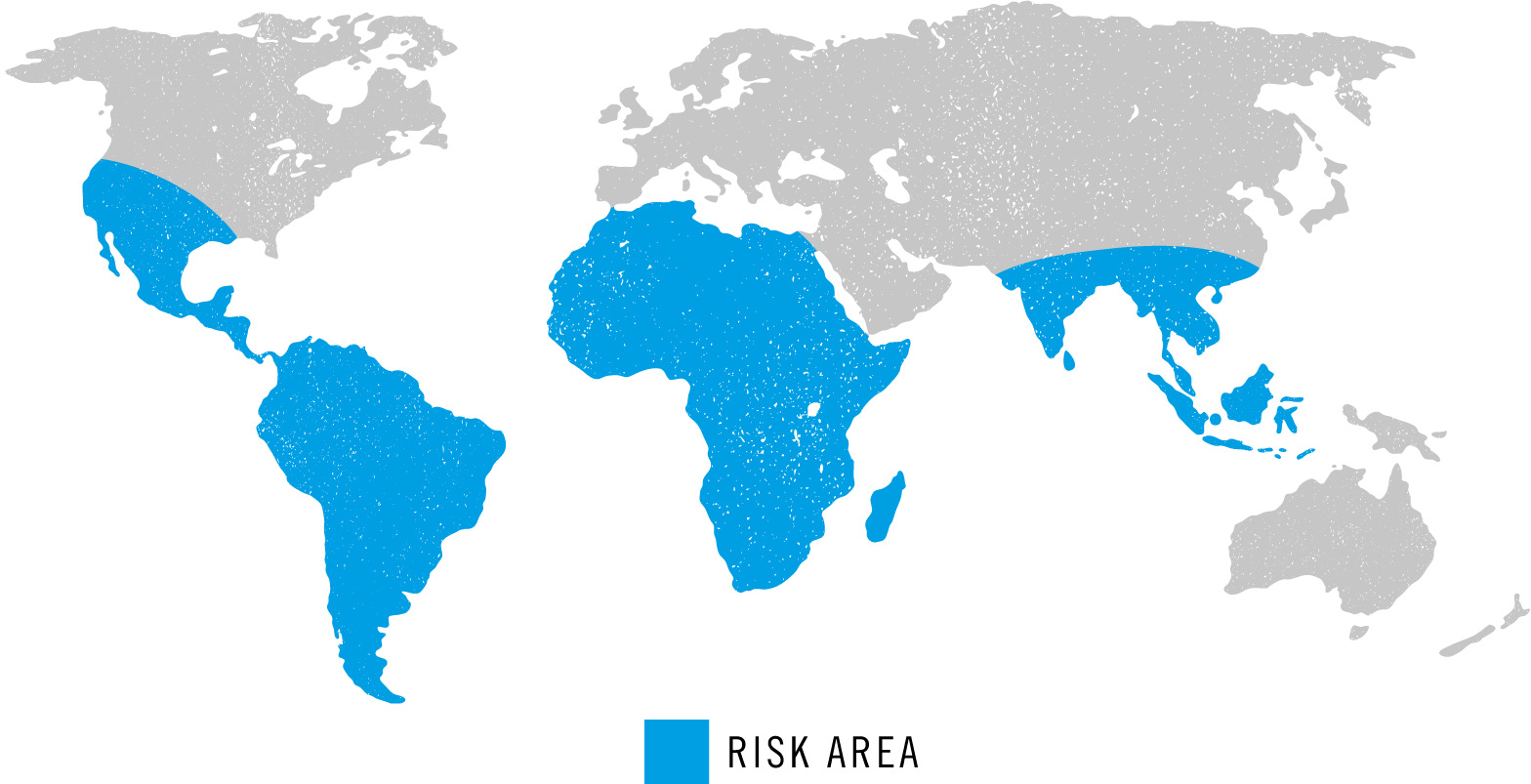Zika virus was first discovered in the Zika Forest, Uganda in 1947. Then the first known human cases were documented in Uganda and Tanzania in 1952. Despite the virus presence in Africa and Asia there were relatively few human cases reported until an outbreak in 2007 in Micronesia. Subsequent outbreaks continued to occur in other Pacific Islands then in 2015 outbreaks were reported in Brazil and other parts of Central and South America. It was then that Brazil noticed a rise in cases of Guillain–Barré syndrome, and brain malformations in newborn babies, later confirmed to be caused by Zika infection during pregnancy.
Most infections do not cause any symptoms, however if they do they are do they are generally mild and self-limiting lasting a few days. Symptoms can include a fever, rash, headache, muscle and bone aches and conjunctivitis. Symptoms are similar to that of Dengue fever.
Protect yourself against zika virus by taking the following precautions to avoid mosquito bites:
- Cover up arms and legs – wear long loose fitted clothing
- Apply insect repellents containing DEET to exposed skins and re apply frequently – always apply over suncream
- Treat your clothing with insecticides made with permethrin – it will kill any mosquitoes that land on your clothes
- Use air conditioning, seal windows and plug-in or mosquito coils to kill any mosquitoes that might get into your room.
- Sleep under treated mosquito nets if in basic accommodation or require extra protection
Pregnant women are advised not to travel into Zika regions, and male partners must use condoms for 6 months after travel into affected areas to prevent sexual transmission of the disease to a pregnant partner. If planning pregnancy, female travellers should avoid getting pregnant for at least 8 weeks after being in a Zika region. Whereas men must avoid getting a woman pregnant for at least 3 months following travel into a Zika region as the virus can survive in sperm for much longer and can be sexually transmitted.
Zika Virus Risk Areas

